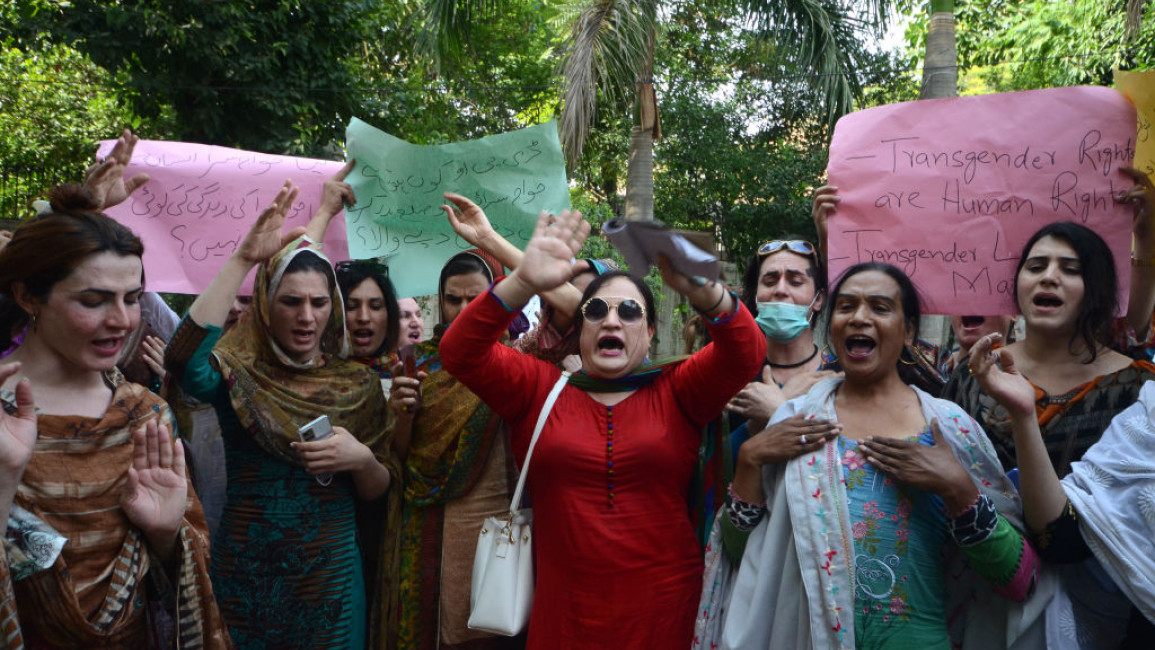
Defending the Transgender Act is decolonising Pakistan’s laws
Pakistan’s minorities are facing yet another attack from the right who have managed to rally up quite a number of people in support of their discriminatory politics. This time, it's the transgender community that is being called into question and the resulting controversy can jeopardise years of progress.
The historic Transgender Rights Act was passed in the national assembly in 2018 with both the opposition and ruling party unanimously voting in favour. This moment was marked as a monumental win for the transgender community, often indigenously referred to as Khwaja Siras. However, the bill is once again the talk of the town after being criticised by leaders of the right-wing political group known as Jamaat-e-Islami (JI).
The protest from JI and their followers has resulted in a rise in transphobic hate crimes. Many who have never interacted with the document itself, are eager to believe in the propaganda being spread in the name of religion.
''Despite the religious group's insistence on this stance being anti-American and rooted in Islamic values, many have pointed out how Jamaat-e-Islami's position is eerily similar to what is being propagated by the right-wing groups in the US.''
In a Muslim majority country, where religion is a strong indicator of identity, it is easy to sell an agenda by packaging it as religious morality. This is a carefully crafted campaign that is side-lining the human rights issue at hand and cashing in on the confusion that surrounds the terminology used for the Khwaja Sira (i.e. transgender or intersex), along with other technicalities.
By stirring up concerns of religious ethics in regards to the protection of rights act, The JI’s Senator Mushtaq Ahmad is effectively putting lives at risk.
Additionally, members of Jaamat-e-Islami, Jaamat-e-Ulema Islami, and others have united in their endeavour to question the integrity of the new laws.
In light of this rampant misinformation campaign by religious groups, it is important to clarify what the act in question is declaring; the right to change one’s gender to X if they do not identify as either Male or Female, the right to inheritance as per Islamic Shariah Laws based on self-perceived identity, the basic rights to work, education, health, and the prohibition of discrimination against transgender people, as well as for the state to take any necessary action for implementation of these rights.
Unfortunately, this is not the first time that misrepresentation of religion is used by the far-right to attack the country’s minorities. Ahmaddiya and Christian minorities are no strangers to the violence that is often a direct result of the rhetoric influenced by extremist leaders.
Despite the religious group's insistence on this stance being anti-American and rooted in Islamic values,
On 18 September, Mushtaq Ahmed challenged the Transgender Rights Act in the Federal Shariah Court, adding that there should be medical examination before allowing any kind of changes to one’s documentation. This invasive procedure would be a clear violation of privacy and goes against international human rights laws and standards.
Ultimately, such tactics only seek to shift
Jameel added that, “right now people are being attacked based on this fake news campaign and the community is facing a very real risk from mob violence”.
Despite
As per the data provided by the International Commission of Jurists, Sathi Foundation, and HOPE,
These numbers are staggering, and if the last few weeks have been any indication, they are likely to grow unless substantial steps are taken to safeguard trans rights against false narratives. The landmark Transgender Act is an essential development toward changing this reality, and while there are important steps to be taken on both federal and provincial levels to ensure its implementation, Jameel explained that the attempt to malign the new law has unfortunately caused a setback.
Transphobic narratives are a remnant of the British colonial era, and to continue to nurture these ideas after a long arduous struggle for independence is an insult to our freedom. The criminal tribes act of 1871, which criminalised the transgender community at the time and threatened their status in society, still plagues the popular narrative today. Instead of defaming the law, we should be proudly backing it for being the first step in the right direction towards decolonisation.
Ifra Javed is a London School of Economics graduate, currently working as a researcher and lecturer at the Lahore School of Economics.
Follow her on Twitter: @Ifra_J
Have questions or comments? Email us at: editorial-english@alaraby.co.uk
Opinions expressed in this article remain those of the author and do not necessarily represent those of The New Arab, its editorial board or staff, or the author's employer.




